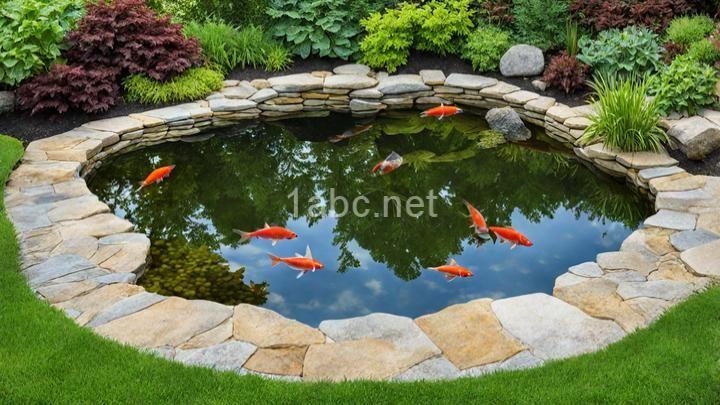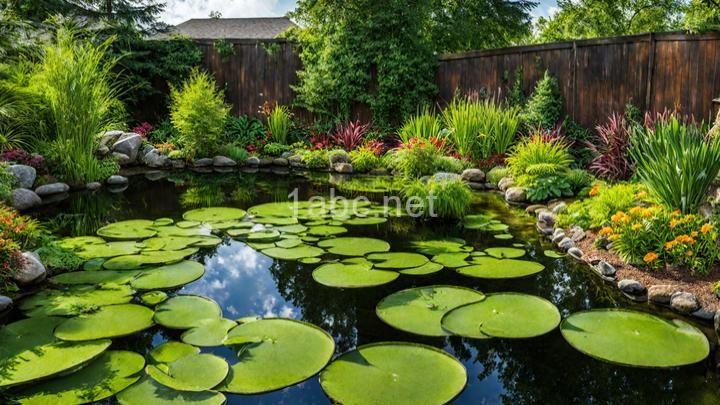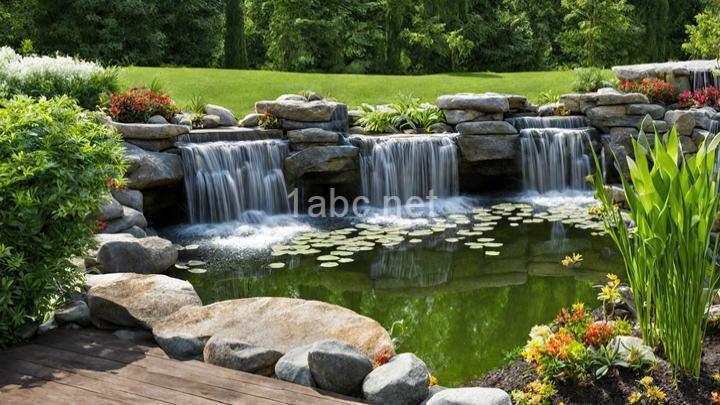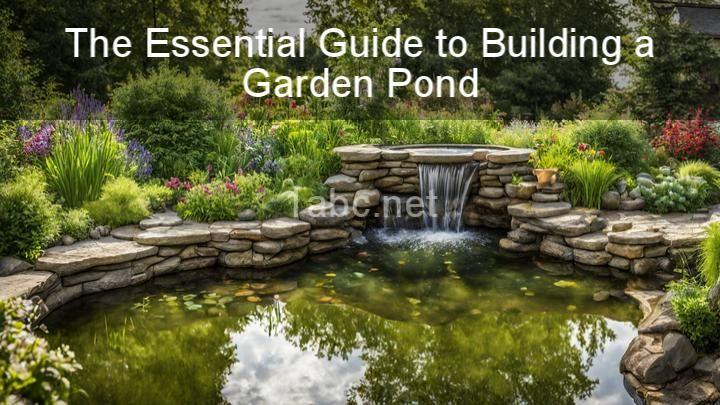The Benefits of Adding Fish to Your Garden Pond

Introduction:
Imagine yourself sitting in your garden, surrounded by nature's beauty, listening to the gentle sounds of water cascading down the rocks. The tranquility and peace that a garden pond brings are unmatched. But have you ever considered adding fish to your garden pond? Not only do they enhance the aesthetics of your outdoor oasis, but they also provide a range of benefits that you might not have considered. In this blog post, we'll explore the many advantages of adding fish to your garden pond and why it's a decision you won't regret.
I. Enhancing the Aesthetics
There's something mesmerizing about watching fish gracefully glide through the water. They add a sense of life and movement to your garden pond, turning it into a vibrant and captivating display. With their vivid colors and unique patterns, fish can create a visually appealing and diverse ecosystem. Imagine the beauty of golden koi fish shimmering in the sunlight or the playful antics of lively goldfish. Each species brings its own charm and character to your pond, making it a truly enchanting space.
II. Natural Pest Control
Nobody likes unwanted pests invading their garden, but instead of resorting to chemical pesticides, why not let nature take care of the problem? Certain types of fish, such as koi and goldfish, can be effective natural pest controllers. They have a voracious appetite for insects and mosquito larvae, helping to keep your garden free from these pests. By introducing fish to your garden pond, you can enjoy a pest-free environment without the use of harmful chemicals. It's a win-win situation for both you and the ecosystem.
III. Promoting a Balanced Ecosystem
Maintaining a balanced ecosystem is key to the health and longevity of your garden pond. Fish play a crucial role in achieving this balance. They contribute to nutrient cycling by consuming algae and other organic matter, which helps prevent excessive growth and maintain water clarity. Additionally, certain species of fish, like bottom feeders, can stir up the pond substrate, preventing the build-up of sediment and promoting overall water quality. However, it's important to choose fish species that are compatible with the existing ecosystem to avoid disruptions.
IV. Educational and Therapeutic Benefits
Adding fish to your garden pond not only provides visual delight but also offers educational opportunities for both children and adults. Observing fish in their natural habitat can teach us about the fascinating world of aquatic life, promoting an appreciation for nature and the environment. Children can learn about the different species of fish, their habitats, and their interactions with other organisms. For adults, watching fish can have a calming effect, reducing stress and promoting relaxation. It's like having a living piece of art right outside your door.
V. Maintenance Considerations
While adding fish to your garden pond brings numerous benefits, it also requires careful attention to their care and maintenance. Feeding your fish the appropriate diet, managing water quality, and preparing for winter are all important considerations. It's crucial to strike a balance between providing enough food for your fish without overfeeding and disrupting the ecosystem. Regular water testing and maintenance will ensure optimal conditions for your aquatic friends. Additionally, be aware of common mistakes to avoid when introducing fish to your pond, such as overcrowding or introducing incompatible species. Resources and links for further information can be found on our website to help you maintain a healthy environment for your fish.
Conclusion:
Adding fish to your garden pond is a decision that offers a multitude of benefits. From enhancing the aesthetics to providing natural pest control, promoting a balanced ecosystem, and offering educational and therapeutic benefits, fish are a valuable addition to any garden pond. By following proper care and maintenance guidelines, you can create a thriving aquatic habitat that brings joy and tranquility to your outdoor space. So why not take the plunge and experience the wonders of fish in your garden pond? We invite you to share your own experiences or ask any questions you may have. Happy ponding!
Note: This blog post contains general information and should not replace professional advice. Please consult with experts or experienced individuals for specific guidance on caring for fish in your garden pond.
FREQUENTLY ASKED QUESTIONS
What are the benefits of adding fish to my garden pond?
Adding fish to your garden pond can provide several benefits. Firstly, fish help to create a balanced ecosystem by consuming algae and other unwanted plant material. This can help to keep the water clean and clear. Additionally, fish produce waste which serves as a natural fertilizer for aquatic plants, promoting their growth and enhancing the overall aesthetics of your pond.Fish also add movement and liveliness to the pond. Watching fish swim and interact can be a relaxing and enjoyable experience. They can become a focal point of your garden, attracting attention and creating a sense of tranquility.
Moreover, fish can help to control mosquitoes and other insects. Certain fish species, such as mosquito fish, feed on mosquito larvae, reducing their population and minimizing the nuisance of these pests in your garden.
It is important to note that adding fish to your pond requires proper care and maintenance. You should provide adequate filtration and aeration to ensure a healthy environment for the fish. Regular monitoring of water quality is essential to prevent any potential issues.
Overall, adding fish to your garden pond can enhance its beauty, improve water quality, and provide a natural method of pest control. It can create a harmonious and vibrant ecosystem that you can enjoy and appreciate.
What types of fish are suitable for a garden pond?
When it comes to choosing fish for your garden pond, there are several types that are well-suited to thrive in this environment. Some popular options include:
-
Koi: Koi fish are a common choice for garden ponds due to their vibrant colors and elegant appearance. They are hardy and can adapt well to various water conditions.
-
Goldfish: Goldfish are another great option for garden ponds. They come in different varieties, such as Comets, Shubunkins, and Fantails. Goldfish are known for their ability to withstand different water temperatures.
-
Mosquito Fish: Mosquito fish, also known as Gambusia, are a practical choice for garden ponds as they help control mosquito populations. They are small, hardy, and easy to care for.
-
Rosy Red Minnows: Rosy Red Minnows are a type of small, freshwater fish that can add a lively touch to your pond. They are known for their reddish-orange color and can tolerate a range of water conditions.
-
White Cloud Mountain Minnows: White Cloud Mountain Minnows are small, peaceful fish that can thrive in garden ponds. They prefer cooler water temperatures and are easy to care for.
When selecting fish for your garden pond, it's important to consider factors such as water temperature, size of the pond, and compatibility with other fish species. Additionally, providing adequate filtration and regular maintenance will contribute to the overall health and well-being of the fish in your pond.
How do fish contribute to the ecosystem of a garden pond?
Fish play a crucial role in the ecosystem of a garden pond. They contribute in several ways, making them an essential part of maintaining the balance and overall health of the pond.Firstly, fish help control the population of insects and pests. They feed on mosquito larvae, aquatic insects, and other small organisms that can multiply rapidly and become a nuisance. By keeping these populations in check, fish help prevent outbreaks of pests and maintain a healthier environment.
Secondly, fish contribute to the nutrient cycle in the pond. They produce waste in the form of feces, which contains valuable nutrients like nitrogen and phosphorus. These nutrients are essential for the growth of aquatic plants and algae. As fish excrete waste, it enriches the water with nutrients, promoting the growth of plants and algae, which in turn provide oxygen and food for the fish.
Additionally, fish help with the decomposition of organic matter. They feed on dead plant material, fallen leaves, and other organic debris that accumulate in the pond. By consuming this organic matter, fish accelerate the decomposition process, preventing the accumulation of decaying material and reducing the risk of water quality issues.
Furthermore, fish play a role in the overall biodiversity of the pond. Different species of fish have specific feeding habits and niches within the ecosystem. This diversity helps maintain a balanced food web, with different species interacting and depending on each other for survival.
Overall, fish contribute significantly to the ecosystem of a garden pond by controlling pests, enhancing nutrient cycling, aiding in organic matter decomposition, and promoting biodiversity. Their presence is vital for maintaining a healthy and thriving pond ecosystem.
Do fish help control algae growth in a garden pond?
Yes, fish can indeed help control algae growth in a garden pond. Fish, such as koi or goldfish, can consume algae as part of their diet, thereby reducing its presence in the pond. Algae blooms often occur due to excess nutrients in the pond, such as from decaying organic matter or overfeeding. By introducing fish into the pond, they can help maintain a balance by eating the algae and preventing it from overgrowing. However, it's important to note that fish alone may not completely eliminate algae, especially if the pond is experiencing excessive nutrient levels. Regular pond maintenance, such as removing debris and controlling nutrient input, is also essential for keeping algae growth in check.


